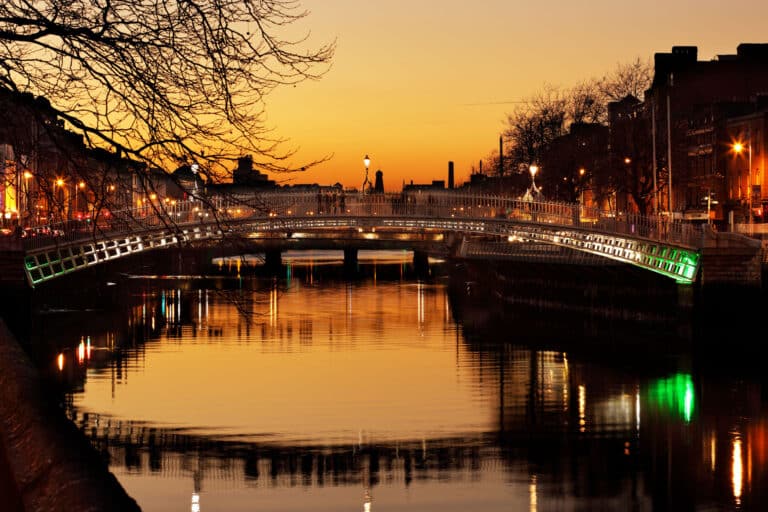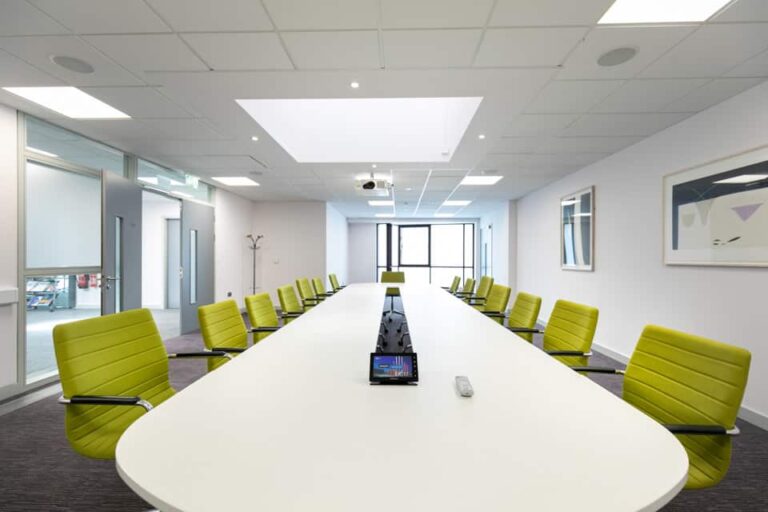According to Greenly, The event industry as a whole is responsible for as much as 10% of global greenhouse gas emissions. Considering everything from materials used, energy consumed, waste created, and the transport required for participants, hosting events, especially in-person events, carries a big environmental responsibility. When you start to plan your event, ensure environmental considerations are high on your list of priorities and at the front of your mind when booking your venue. Working with a sustainable Dublin conference venue like DCU can help reduce your event’s impact with minimal effort. Contact our team to learn how we reduce our carbon footprint daily.
Sustainable Venue
Choosing a venue that is actively trying to become more eco-friendly with their events and in their everyday operations is the best way to get sustainable event planning off to a good start. DCU has a sustainability charter that our teams follow and a sustainability council that meets regularly to discuss our goals and the next steps we can take to improve. We are one of the first college campuses in Ireland to go completely plastic-free meaning all single-use plastic is banned. We do not provide straws, stirrers, single-use plastic bags, disposable coffee cups and many other unnecessary items. We encourage our event organisers to follow suit, reducing the amount of waste generated at the event.
Cater Responsibly
Catering is an important part of organising an event and for attendees, something that helps a conference or meeting stand out from the crowd. Venues like DCU rooms often provide a wide range of catering options for meetings and events in Dublin, ranging from light refreshments like tea and coffee to banquet meals for large parties. Where possible, it’s important to source food locally to ensure the event’s carbon footprint is not unnecessarily increased by food miles. Event organisers should only order catering supplies and meals for those who opt-in, rather than creating a lot of food waste; this also saves hundreds in event costs. By switching to biodegradable serving options like reusable cutlery and serving drinks in jugs instead of plastic bottles, you can very easily cut down on your environmental impact.
Event Freebies
Just like catering at events, everyone loves a freebie. Attendees of events love ‘swag’ and companies use the occasion to hand out promo and branded items for free advertising. However, these free gifts are often left behind or discarded at home, without consideration for the environment. Organisers should ask themselves if the promo items are worthwhile and if the quality is high enough that they will be used. If the company wants to bring promo items, they should be useful, high quality and sustainable. Items like water bottles, reusable coffee cups and tote bags last longer than cheap plastic pens.
Public Transport
The carbon footprint does not start or end within the event venue. If you have 100 people travelling to your event by car, that’s 200 car journeys that must be accounted for also. Choosing a venue with adequate public transport options is essential to sustainable event planning. For example, our event venue in Dublin’s Glasnevin has ample bus connections to and from the city centre and onwards. There are train stations nearby for those travelling from further afield and plenty of bike spaces to lock bicycles and scooters securely. If private transport cannot be avoided, organisers might opt to charter a bus to take attendees from one central location to the event venue, avoiding congestion and reducing the number of private cars on the road.
Reduce Waste
The first step to reducing waste is to reduce the number of disposable items that you bring to your event venue. By ensuring single-use plastic is not easily available, you can reduce the amount of waste left over at the end of the day. Accounting for numbers when ordering food means less food waste is generated. Event décor should be sustainable and reusable, avoiding plastic where possible. Signage and brochures should be on an essential basis, instead providing QR codes for attendees to scan and browse when they get home. The same goes for ticketing – digital tickets without the need to print and scan reduces paper waste. Obvious recycling facilities at the event can also help to cut down on landfill waste. Encouraging attendees to follow your lead and keep their carbon footprint to a minimum will help.
There are so many small steps to making your event more sustainable, without affecting the quality of the experience. To enjoy a more sustainable conference and event venue in Dublin, contact DCU today.





